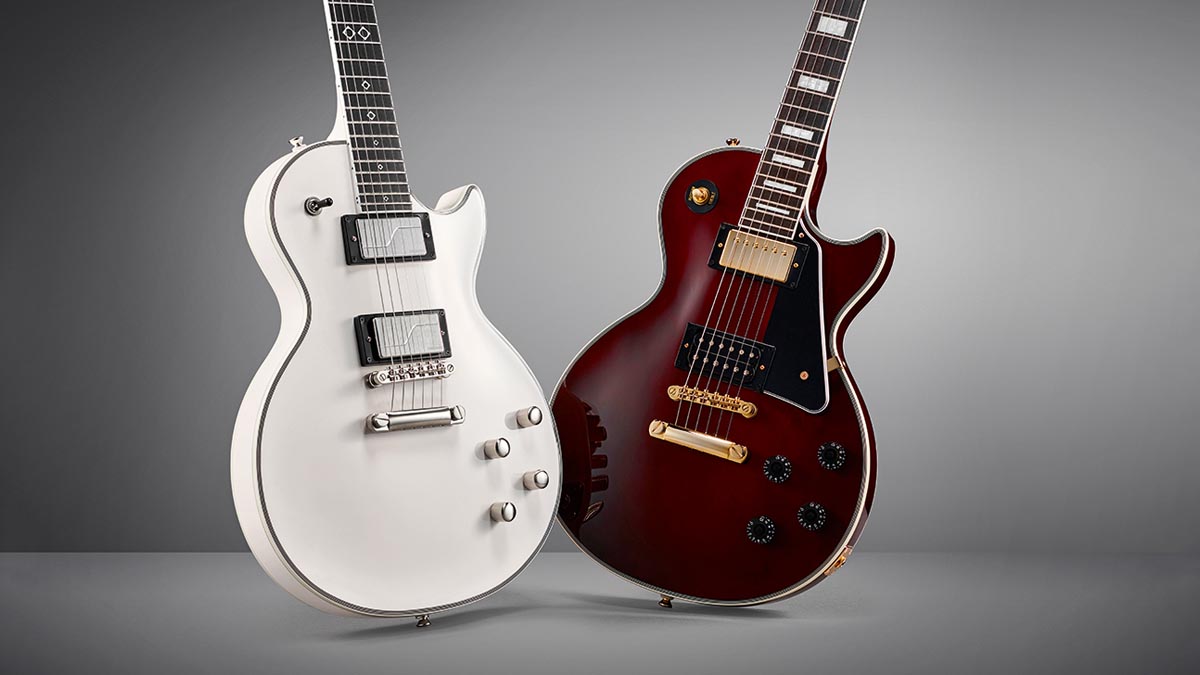MusicRadar Verdict
Cantrell’s Wino Les Paul Custom translates well as an affordable but top-quality electric, offering a classic LP performance with the refinement you’d expect from the model, while the Prophecy is a faintly thrilling, made-for-metal singlecut that has hidden depths, with multiple pickup voicings making for one formidable instrument.
Pros
- +
Both versatile in their own right.
- +
Both are very easy on the eye.
- +
Tidy fit and finish.
- +
Hard-shell case included.
Cons
- -
Prophecy is maybe too modern for purists.
MusicRadar's got your back
Epiphone Jerry Cantrell 'Wino' Les Paul Custom and Les Paul Custom Prophecy: What is it?
Epiphone's Jerry Cantrell signature guitars offer two divergent takes on the Les Paul Custom, both spec’d generously for the price.
The ‘Wino’ Les Paul Custom will be the more recognisable to Cantrell fans, offering a more affordable approximation of his legendary Wine Red model, recently replicated exactingly in Gibson’s Murphy Lab, and duly selling for megabucks.
The Prophecy, meanwhile, is a more modernistic Les Paul Custom, finished in Bone White with active Fishman Fluence humbuckers offering multi-voice performance, and a 24-fret fingerboard a positively vertigo-inducing proposition for the Les Paul purist.
Both are Chinese-made, and in keeping with the QC we have seen from recent Epiphone guitars these are immaculately finished, retaining much of the aspirational lustre of parent brand Gibson. As signature models go, these are likely to have a wider appeal too. You needn’t be an Alice In Chains superfan to find merit in these builds.
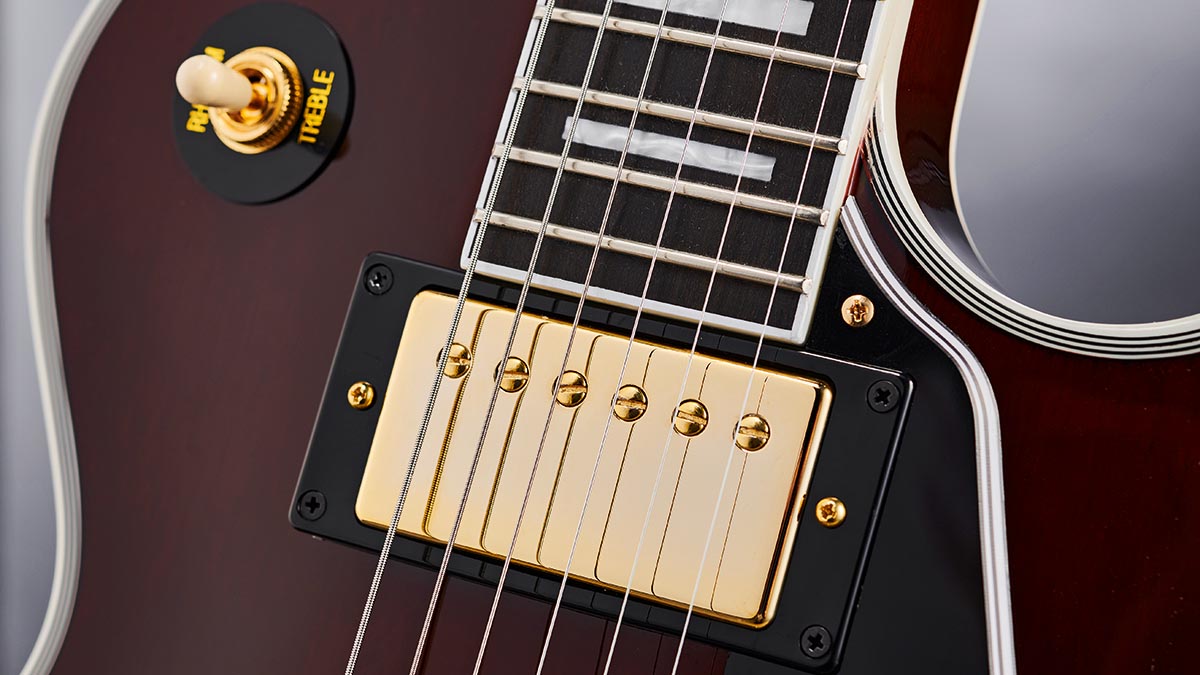
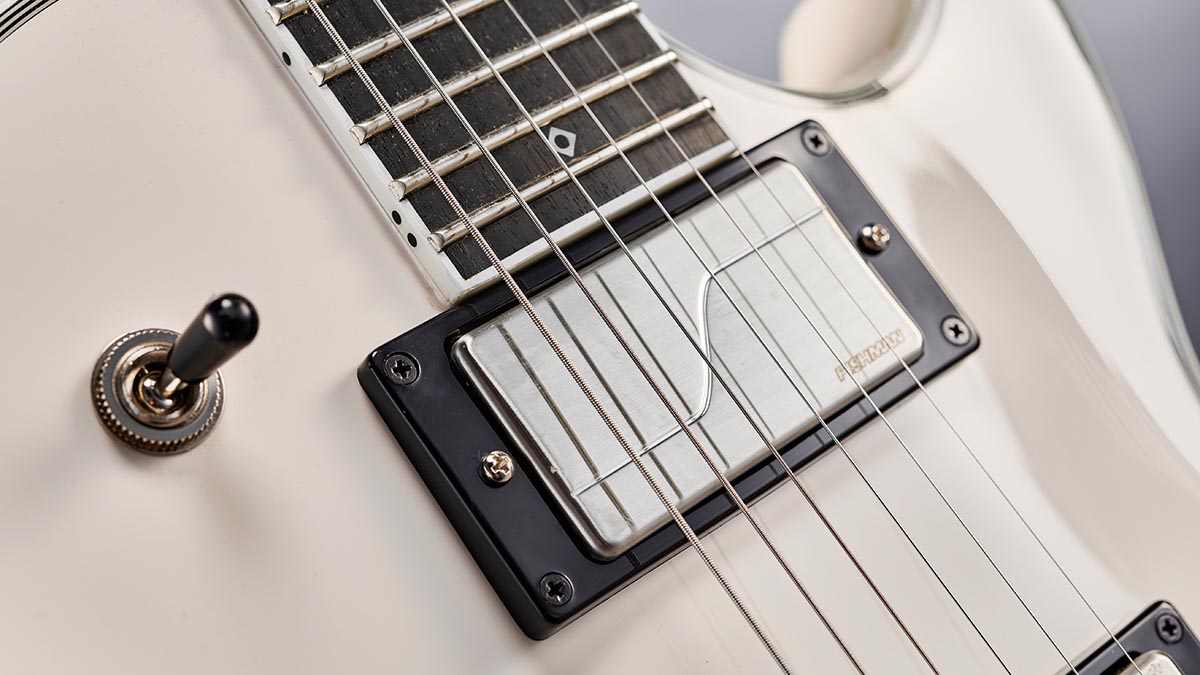
Fundamentally, the construction is ostensibly quite similar. Both models have solid weight-relieved mahogany bodies topped with a maple cap, although the Ultra Modern weight relief of the Prophecy leaves it a noticeably lighter instrument than the Wino model, which has traditional nine-hole weight relief.
These being Les Paul Customs, the glued-in mahogany necks, multi-ply bodies and bound headstocks with the MOP split diamond inlay are the order of the day, and there’s something uncanny about the latter to endow a guitar a sense of prestige.
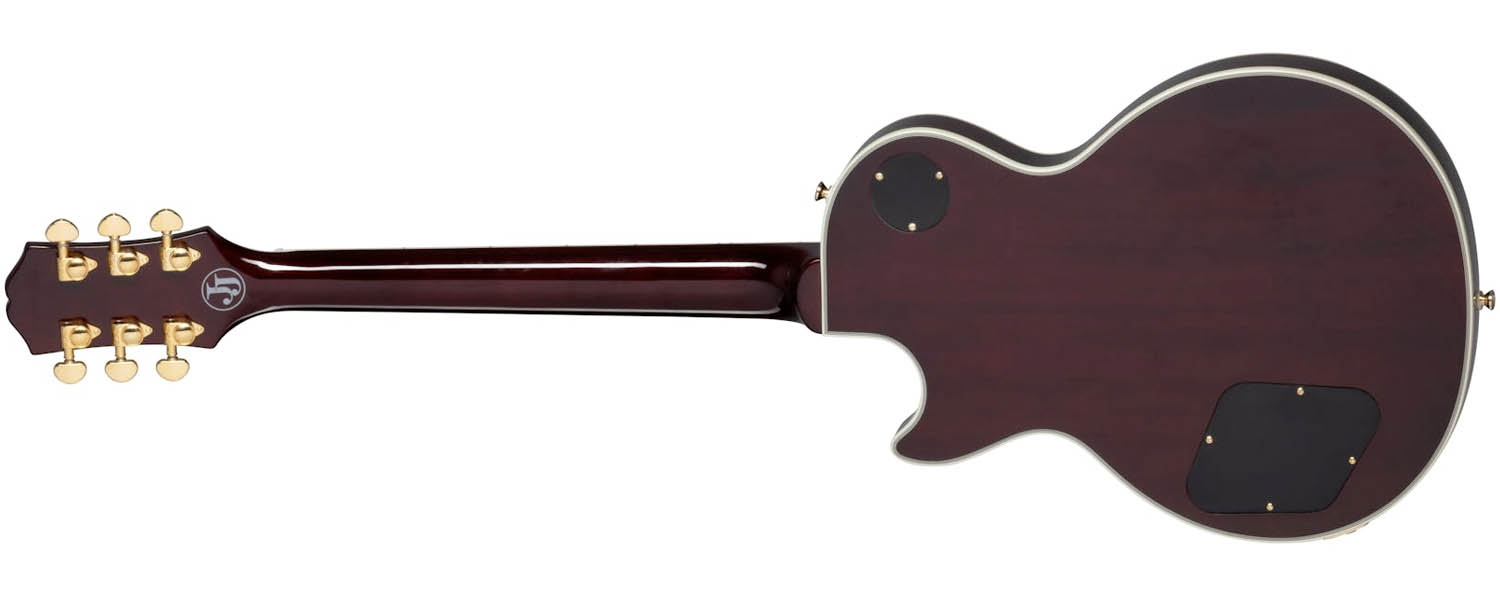
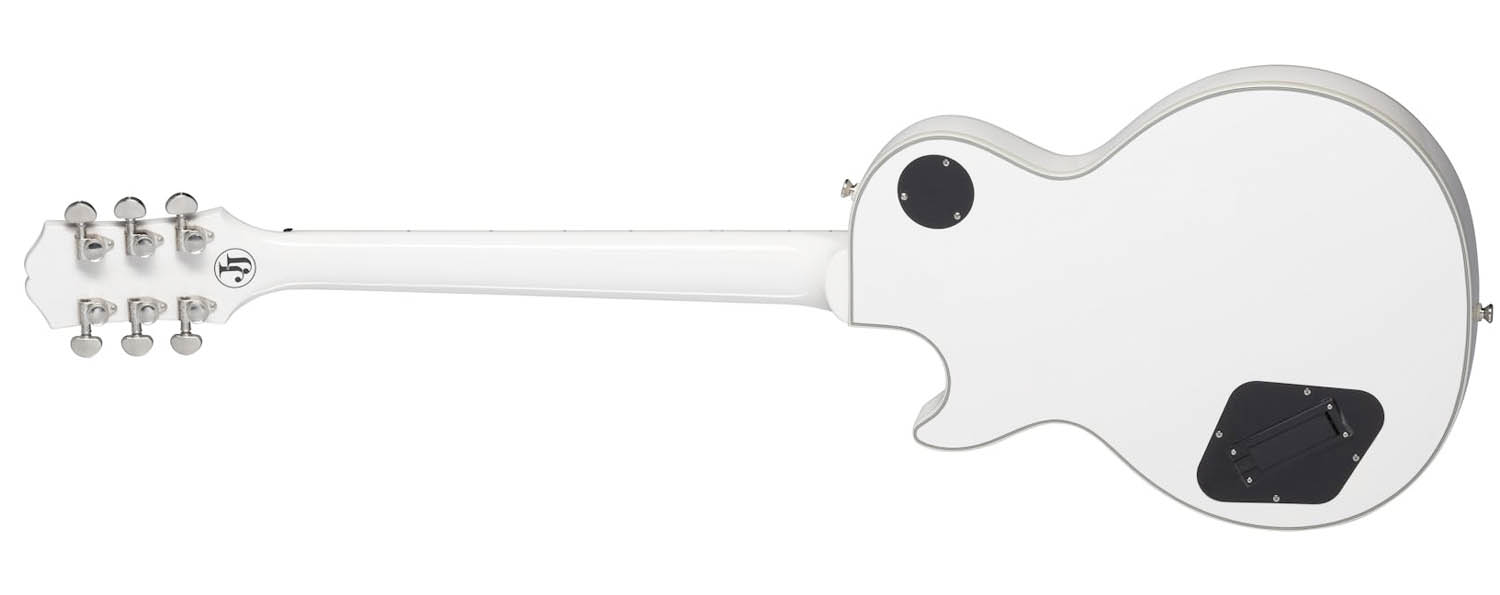
And yet these are quite different guitars. Where the Wino model defers to the house style with its ebony fingerboard inlaid with pearl blocks, the Prophecy model has a minimalistic ‘Circle in Diamond’ inlay. The look of the Prophecy model, its chrome hardware on Bone White, is cleaner, almost surgical. The Wino model is opulent, with gold hardware in exquisite contrast to the deep red of the finish.
Want all the hottest music and gear news, reviews, deals, features and more, direct to your inbox? Sign up here.
Both guitars are outfitted with a LockTone Tune-O-Matic bridge and tailpiece, with the Prophecy model option for locking Grover Rotomatic tuners with the Wino model has Grover Rotomatic 18:1 with kidney buttons.
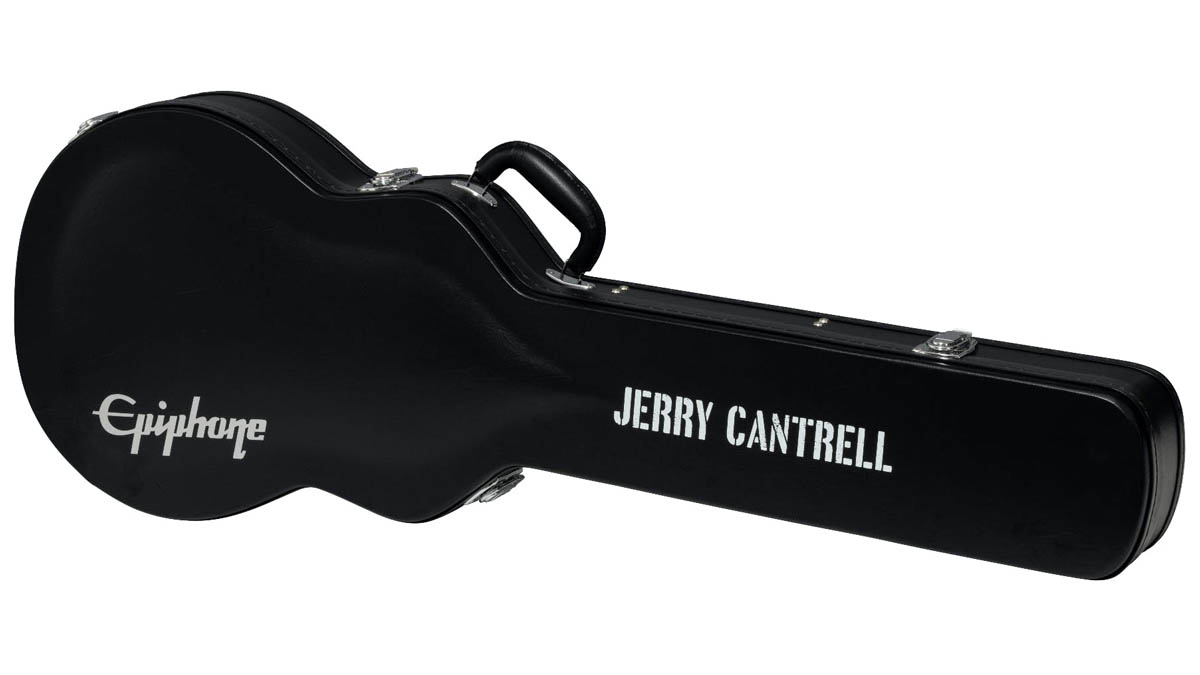
Choosing between both models, however, is not about hardware and finishes. It’s about whether you want the modernity of the Prophecy, the 24-fret fingerboard and the multi-voiced Fishman pickups that offer hot humbucker, PAF-alike and single-coil tones from push/pull functions on the usual dual-volume, dual-tone control setup.
Or, is the classic performance of the Wino more your speed? A guitar on which the bridge position’s exposed coil 98T PRO humbucker is the Mr Hyde to the Alnico Classic Pro’s Dr Jekyll at the neck.
Epiphone Jerry Cantrell 'Wino' Les Paul Custom and Les Paul Custom Prophecy: Performance and verdict
Let’s tackle the Wino model first. Besides the G&L Rampage, this is the guitar most associated with Jerry Cantrell, and while the spec has been scaled down for this – there is no Fishman piezo on the bridge for those blended electric and acoustic guitar tones, it nails the look.
Cantrell’s name adorns the truss rod plate cover, while his initials can be found on the back of the headstock. Otherwise, this is simply a real classy Les Paul Custom – the acme of its pro-quality at accessible price range.
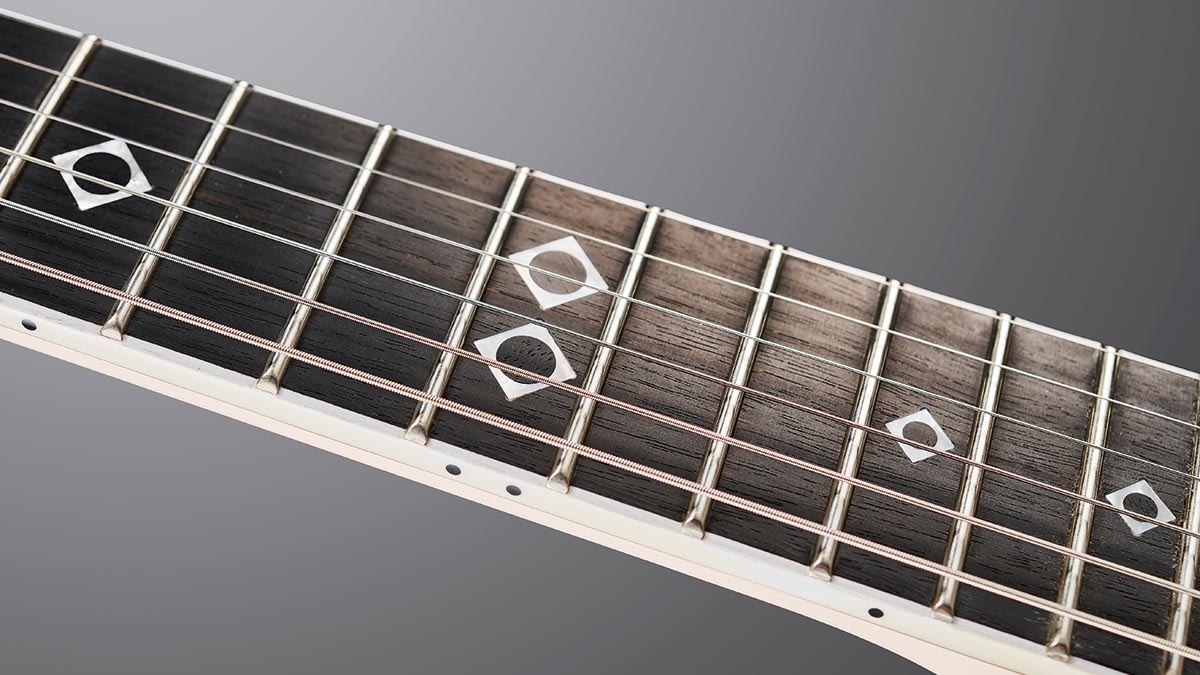
The medium-jumbo frets and the healthy curvature of the neck profile would welcome anyone who likes their Les Pauls to feel substantial in every sense.
Plugging in through a tube amp and hitting a chord and there’s an authenticity to the Wino’s voice. The Alnico Classic Pro has that artery-clogging quality, a rich warmth and thickness – tone for a special occasion – that nonetheless has a trebly chime that articulates your notes. Flick to the 98T PRO and dial in some drive and it soon shows its teeth with a tone capable of chewing its way through the Cantrell back catalogue.
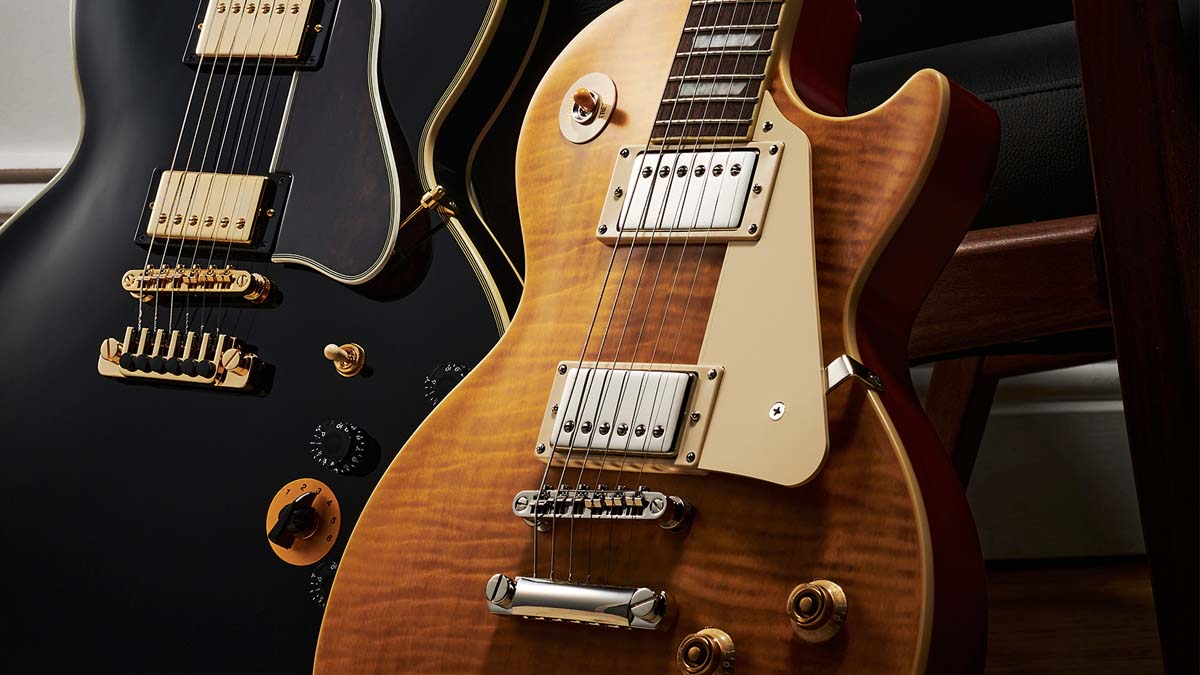
• Epiphone Joe Bonamassa ‘Lazarus’ 1959 Les Paul Standard
A worthy production line replica of a storied ’59 Les Paul Standard, Lazarus is exactly what you would expect from Epiphone and a vintage guitar connoisseur; it’s all vibe and then some.
• Epiphone Flying V Prophecy
The Epiphone Prophecy Flying V is a high-performance electric guitar that is exceptional for metal but with enough range to make it a quite thrilling update to a classic design.
• Epiphone Slash Collection Les Paul Standard
With a choice of finishes, superb spec and a tone that’ll welcome you to the jungle, the Epiphone Slash Les Paul is a no-brainer for GNR super-fans and a very attractive proposition for anyone searching for serious but affordable Les Paul.
You’ll be thankful for the quality hardware when alternating between Drop D and standard tunings and there’s something so solid and dependable about the performance here. While there is enough grunt to heave into a grunge/metal riff, rolling back the volume cleans these pickups up nicely; even with Jerry Cantrell’s name on the back of its headstock, the Les Paul Custom can still operate as a blues guitar with pedigree.
This might be beyond the Prophecy model’s brief. Sure, the multi-voice pickups expand your options tonally but there is something explicitly metal about its design. Fans of the Fishman Fluence design swear by their enhanced attack and output. Trivium’s Matt Heafy is particularly evangelical, describing them as having a faster attack that improved his playing. This quality comes into its own in high-gain scenarios, especially if you tune the guitar down below D.
There’s an immediacy about the Prophecy’s hot voicings. It ain’t subtle. It might even be overkill. But metal is an art form that rewards overkill. They’ll chug all right.
But then there’s the other side to the Fishman Fluence’s design. The vintage PAF voicing parks its sound on the Wino’s lawn, muscling in on the old-school Les Paul’s territory, which, again, puts the prospect of blues guitar tones on the menu. This is the most authentically Cantrell of all the Prophecy voicings, with its hot modes arguably more suited to sounds more extreme than those heard on AIC records.
Finally, the single-coil modes, while not in danger of sounding like a Fender Stratocaster, do nonetheless offer something unorthodox and quite thrilling to hear coming out of a Les Paul Custom, and it’s the sort of mode that could prove invaluable when playing a set that needs such a diverse range of sounds.
Those looking for a do-it-all metal guitar – with range and sophistication if needed, blow-torch lead and rhythm tones as standard – for a grand will do will with the Prophecy
There’s no questioning the Prophecy’s versatility. The 24-fret format and multi-voice pickups will be too modernistic for some. It also seems like an unusual guitar for Cantrell to put his name too. But in the stifling conformity of the modern world, it pays to be different, to be hard to pigeonhole. Those looking for a do-it-all metal guitar – with range and sophistication if needed, blow-torch lead and rhythm tones as standard – for a grand will do well with the Prophecy.
Those who prefer the refinement and stateliness of old-school Gibson design will find that blue-blooded DNA to their tastes on the Wino. It’s also a few hundred bucks cheaper, which always sweetens the deal. Whichever you choose, you’ll have a typical example of Epiphone’s high-end approach to affordable guitar-making, serious quality at semi-serious prices.
MusicRadar verdict: Cantrell’s Wino Les Paul Custom translates well as an affordable but top-quality electric, offering a classic LP performance with the refinement you’d expect from the model, while the Prophecy is a faintly thrilling, made-for-metal singlecut that has hidden depths, with multiple pickup voicings making for one formidable instrument.
Epiphone Jerry Cantrell 'Wino' Les Paul Custom and Les Paul Custom Prophecy: The web says
"It doesn’t cover vintage tones quite as well as its claret-hued counterpart – active pickups are typically less smooth and less dynamic than passives – and players who dabble in blues or jazz may find that a bit of a turn-off. Those dialing in higher gain sounds all the way from Rammstein and Slipknot through to Code Orange and Periphery, however, will arguably feel more at home on the Prophecy."
Total Guitar
Epiphone Jerry Cantrell 'Wino' Les Paul Custom and Les Paul Custom Prophecy: Hands-on demos
Epiphone
PMTVUK
Peach Guitars
The Trogly's Guitar Show
Epiphone Jerry Cantrell 'Wino' Les Paul Custom and Les Paul Custom Prophecy: Specifications
Specs – Jerry Cantrell ‘Wino’ Les Paul Custom
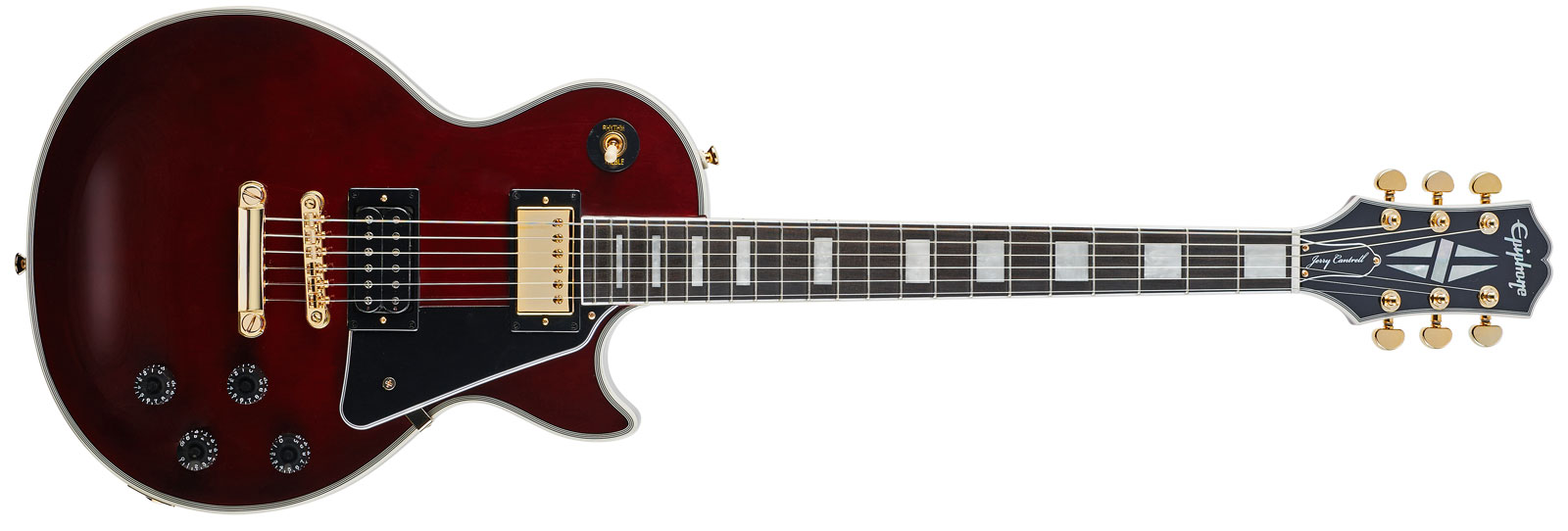
- PRICE: $849 / £749
- BODY: Mahogany with plain maple cap
- NECK: Mahogany SCALE: 24.75”
- FINGERBOARD: Ebony
- FRETS: 22
- ELECTRONICS: Alnico Classic Pro (neck), 98T PRO (bridge)
- CONTROLS: 2x volume, 2x tone, three-way toggle
- HARDWARE: Gold
- LEFT-HANDED: No
- FINISH: Dark wine red
Specs – Jerry Cantrell Les Paul Custom Prophecy
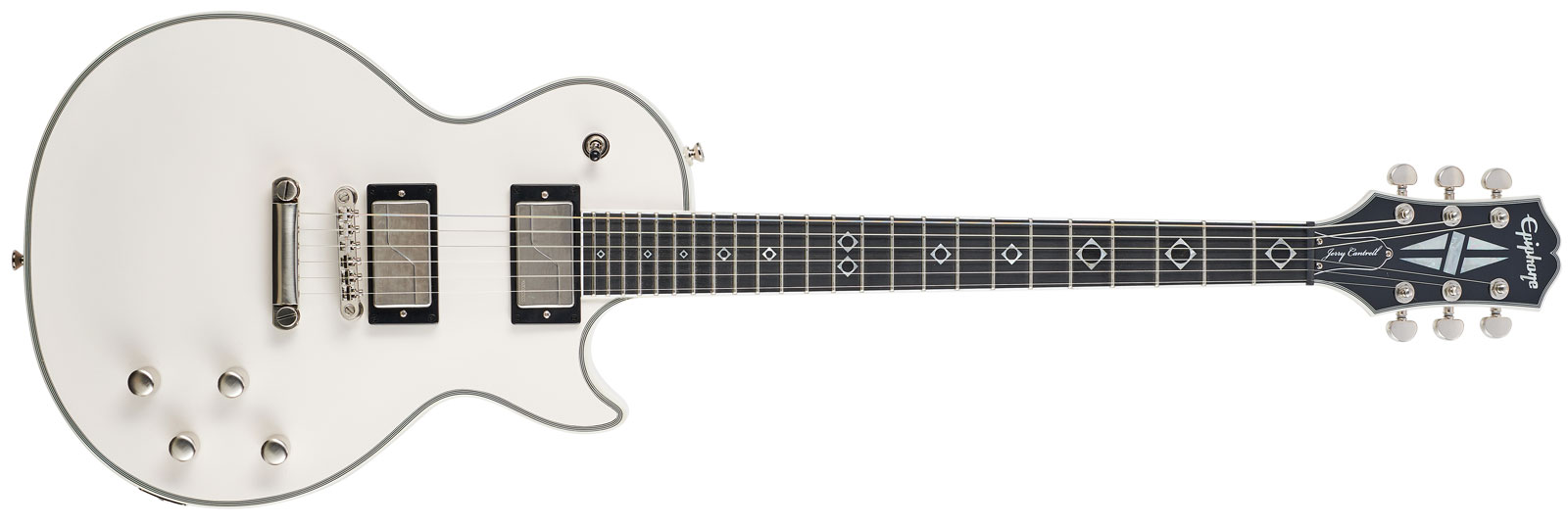
- PRICE: $1,149 / £899
- BODY: Mahogany with maple cap
- NECK: Mahogany
- SCALE: 24.75”
- FINGERBOARD: Ebony
- FRETS: 24
- ELECTRONICS: 2x Fishman Fluence
- CONTROLS: 2x volume with push/pull coil splitting, 2x tone with push/pull voice switching, three-way toggle
- HARDWARE: Brushed nickel
- LEFT-HANDED: No
- FINISH: Bone White
- CONTACT: Epiphone
MusicRadar is the number one website for music-makers of all kinds, be they guitarists, drummers, keyboard players, DJs or producers...
- GEAR: We help musicians find the best gear with top-ranking gear round-ups and high-quality, authoritative reviews by a wide team of highly experienced experts.
- TIPS: We also provide tuition, from bite-sized tips to advanced work-outs and guidance from recognised musicians and stars.
- STARS: We talk to musicians and stars about their creative processes, and the nuts and bolts of their gear and technique. We give fans an insight into the craft of music-making that no other music website can.
